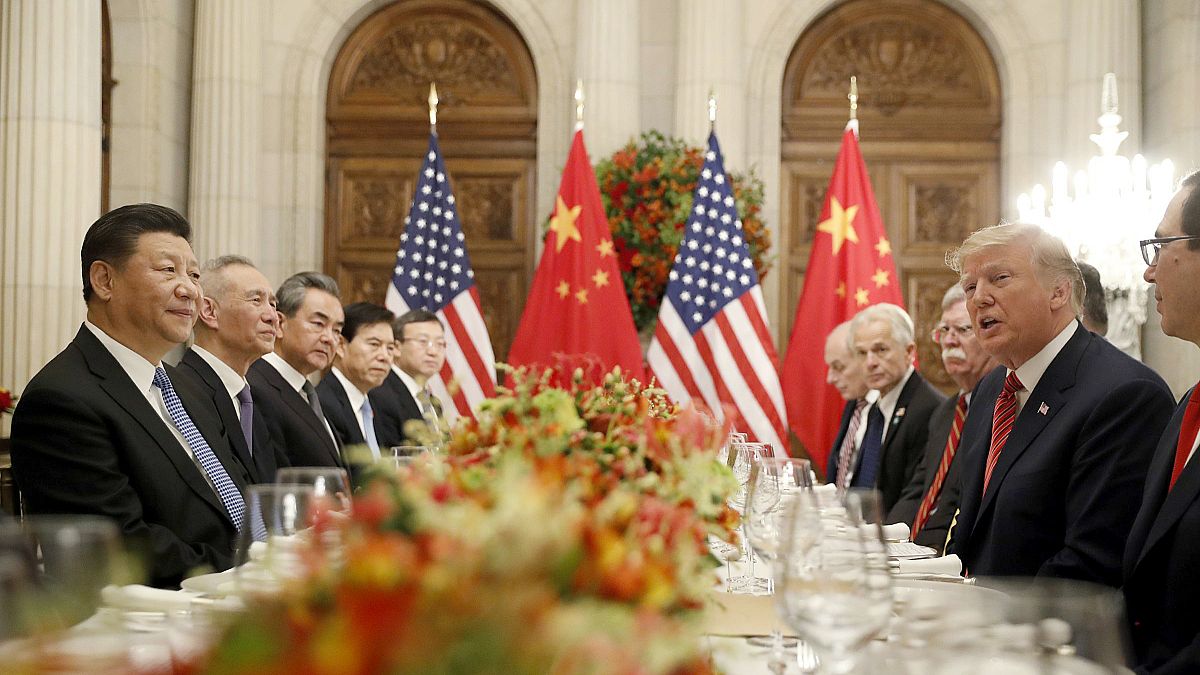In exchange for pause in tariffs, China will buy "very substantial amount" of American goods and make the opioid fentanyl a controlled substance.
BUENOS AIRES, Argentina — President Donald Trump agreed to temporarily hold his next round of fire in the U.S. trade war with China in order to give Washington and Beijing more time to talk, the White House announced Saturday.
Word of the deal, which essentially sets up a process for more negotiation, came hours after Trump met with Chinese President Xi Jinping on the sidelines of the G-20 summit here and after Air Force One had departed for Washington.
"This was an amazing and productive meeting with unlimited possibilities for both the United States and China," Trump said in a statement released by the White House. "It is my great honor to be working with President Xi."
Under the agreement, Trump will hold off on his vow to increase U.S. tariffs on $200 billion worth of Chinese goods from 10 percent to 25 percent on Jan. 1. But if negotiators can't come to a broader agreement at the end of that time, the tariffs will rise, White House press secretary Sarah Sanders said in the statement.
In exchange for Trump pausing the planned increase, China agreed to buy a "not yet agreed upon, but very substantial amount" of U.S. goods from the agricultural, energy and industrial sectors, according to Sanders' statement. China also will make fentanyl, a deadly synthetic opioid, a controlled substance, the White House said.
On a political level, the agreement gives Trump some breathing room as his re-election campaign gears up. Some critics of his policy have said that raising tariffs on Chinese goods is likely to increase prices for voters.
Aaron Friedberg, a Princeton University professor of politics and international affairs, told NBC News before the G-20 summit that such a temporary cease-fire — setting up a structure for further negotiations — was the likely outcome of the Trump-Xi talks.
"It kind of kicks the can down the road," he said. But, he noted, "the differences are deep."
Beyond the trade deficit that occupies much of Trump's attention, the U.S. has a long list of grievances it wants to address with Beijing in any upcoming negotiations. They include forced technology transfer, intellectual property protection and cyber crimes, according to the White House statement.
